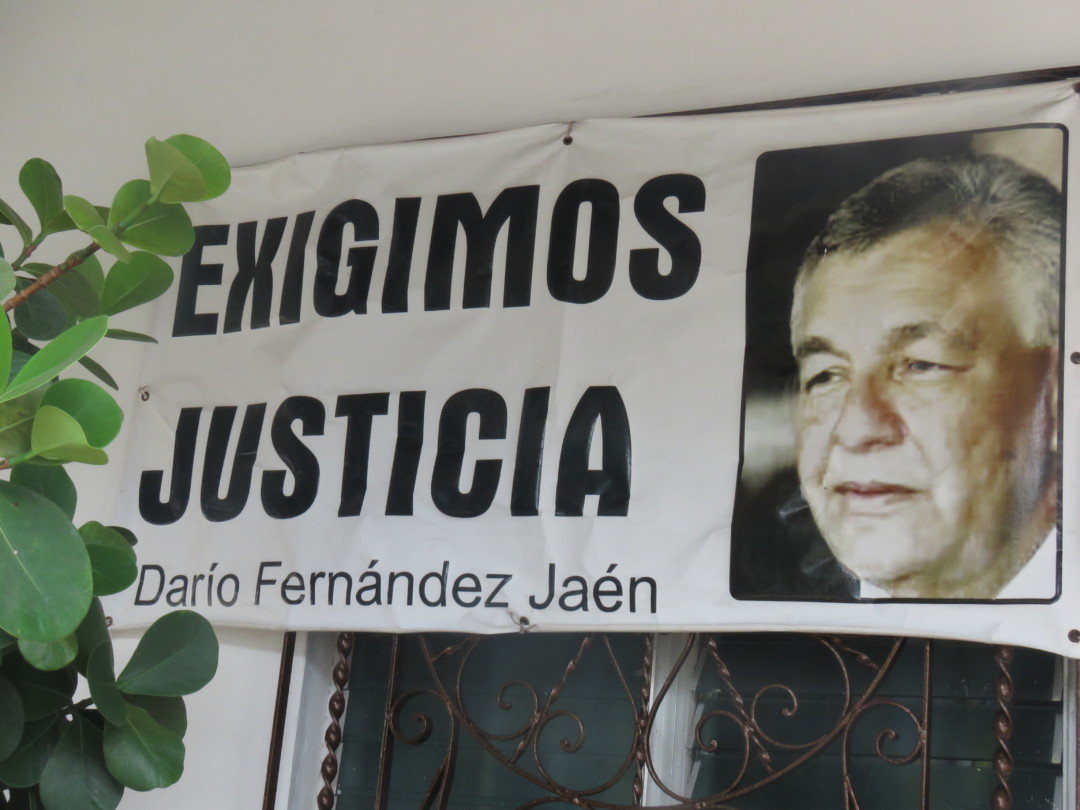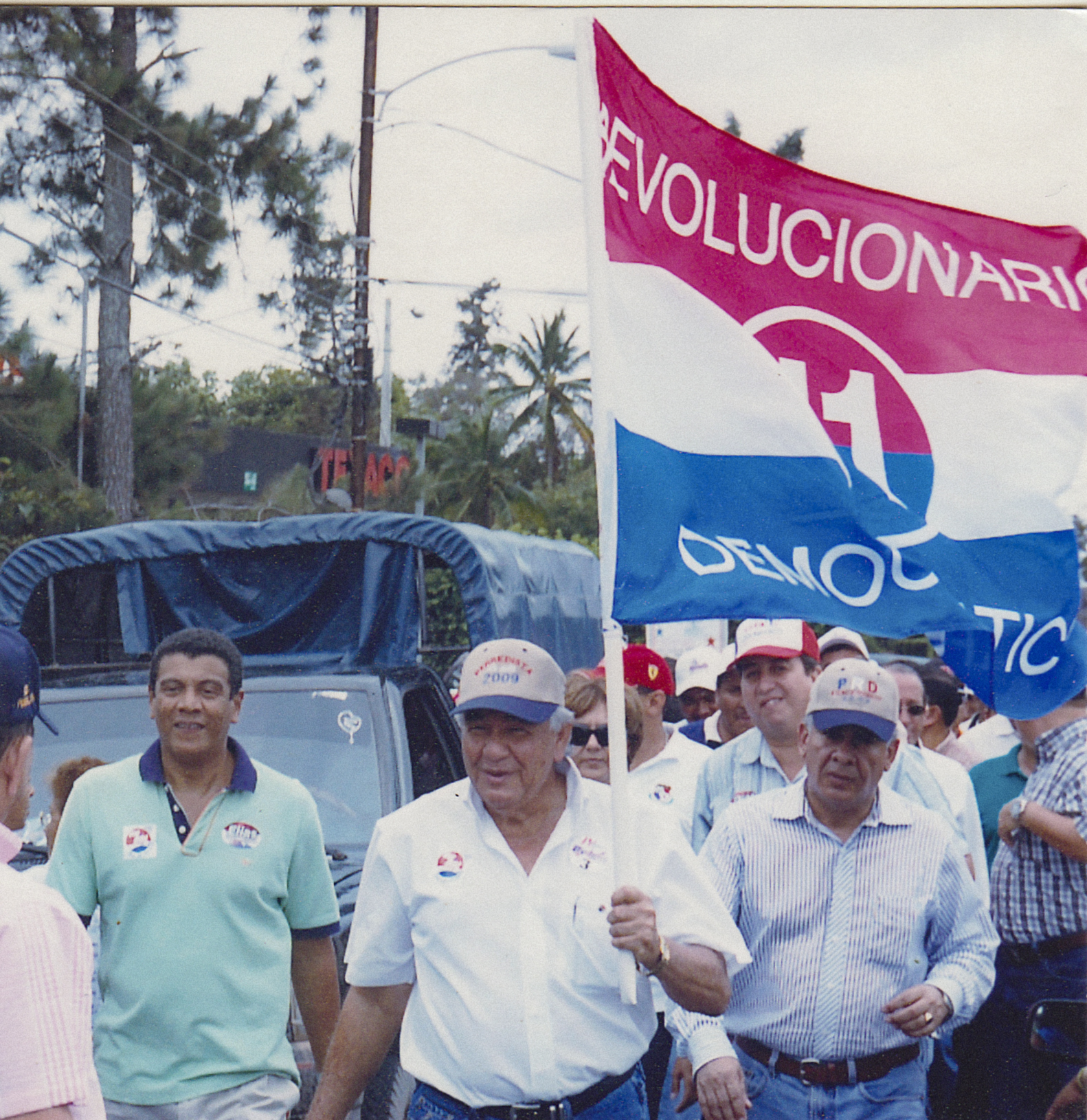6 November 2011
Penonomé, Panama
Darío Fernández
Profession
Media
Motive
Exposure of illegal activity


Adolfo Olivas


Ahmed Divela


Amit Jethwa


Artan Cuku


Babita Deokaran


Bayo Ohu


Berta Cáceres


Bhupendra Veera


Bill Kayong


Boris Nemtsov


Boško Buha


Chai Boonthonglek


Charl Kinnear


Chut Wutty


Chynybek Aliev


Cihan Hayirsevener


Daphne Caruana Galizia


Darío Fernández


Derk Wiersum


Deyda Hydara


Édgar Quintero


Edmore Ndou


Edwin Dagua


Federico Del Prete


Fernando Villavicencio


Gezahegn Gebremeskel


Gilles Cistac


Habibur Mondal


Igor Alexandrov


Jacob Juma


Ján Kuciak


Javier Valdez


Joannah Stutchbury


José Ángel Flores


Jules Koum Koum


Kem Ley


Luis Marroquín


Mahamudo Amurane


Marcelo Rivera


María Elena Ferral Hernández


Marielle Franco


Milan Pantić


Milan Vukelić


Muhammad Khan


Nelson García


Nihal Perera


Oliver Ivanović


Orel Sambrano


Perween Rahman


Peter R. de Vries


Rajendra Singh


Salim Kancil


Sandeep Sharma


Sikhosiphi Radebe


Slaviša Krunić


Soe Moe Tun


Victor Mabunda


Virgil Săhleanu


Wayne Lotter


Yuniol Ramírez


Zezico Guajajara
6 November 2011
Penonomé, Panama
Profession
Media
Motive
Exposure of illegal activity
On 6 November 2011, as national festivities were taking place across Panama (it is the day that the US officially recognized Panama as a republic in 1903), the neighbourhood of San Antonio in Penonomé was suddenly shaken. A gunshot to the head ended the life of 65-year-old Darío Fernández Jaén, former governor of Coclé, the province of which Penonomé is the capital, and a respected leader, politician, lawyer, broadcaster and educator.
Some 40 kilometres from Panama City, Penonomé became the epicentre of a story that spread quickly across the country and gave impetus to a media campaign already being waged against attacks on journalists. Television networks confirmed the news: one of the most prominent politicians of the Democratic Revolutionary Party (PRD) had died.
Fernández was born on 10 March 1946 and grew up in the countryside of Coclé; he had deep roots in the region and had dedicated much of his life to communicating with and solving the needs of the community. As a lawyer and politician, he had immersed himself in the revolutionary process led by the former General Omar Torrijos Herrera. He was a founder of the PRD in Coclé and, between 1984 and 2009, was three times elected governor of the province.
Later, after leaving the world of politics, Fernández obtained a degree in journalism and became the owner and programme manager of the radio station Mi Favorita, where he hosted a political-commentary show critical of former president Ricardo Martinelli and his administration.
Fernández had never believed he was in any danger, despite having been threatened over the station’s coverage of alleged fraud. In October 2011, Radio Mi Favorita had aired a story about a case of land fraud committed by the same person who had illegally transferred the deeds for a property known as Finca 70 (Estate 70) using the name of Fernández’s mother, Juana Marta Jaén for the transfer.
Just before 8 o’clock on the evening of 6 November, as Fernández approached his home on foot, waiting for him in the street was Joel Guerra Flores (aka ‘Chiri’), a member of a notorious gang of criminals known as The Barracudas. Flores shot him point blank in the head. Mortally wounded, Fernández collapsed in front of his wife and son.
Witnesses had seen Flores prowling the area just days before and, before the attack, Fernández had allegedly been stalked by other members of The Barracudas. Hours before the murder, Miguel Arner García (nicknamed ‘Picoro’) had knocked on the door of the politician’s home, but was unable to locate him. The job of tracking Fernández down was then passed on to Deshy Quirós Matal (aka ‘China’), who was tasked with shadowing him and then giving the signal to the hitman, Flores, for the execution. The dark night was complicit in the deed – Flores was able to slip away unnoticed down an alleyway after the hit.
This was not a random act of violence, it was an assassination. According to police investigations, the criminal organization responsible for planning Fernández’s murder had been involved in a range of other serious offences in addition to homicide, including property theft, and intimidation and bribery of witnesses. The group’s main operations had involved targeting abandoned or neglected properties and deceased, sick, absent or foreign landowners. They had acquired land illegally by forging documents, setting up fake companies and using the identities of deceased people. This way, they had been able to conduct multiple irregular deeds transfers within a short period of time.
On 7 May 2013, Flores and five others appeared in court in Coclé, on trial for the murder of Fernández. The prosecution argued that the individuals were members of a criminal organization led by Ricardo Martínez Quirós, and that they had collaborated to commit aggravated intentional homicide and aggravated criminal conspiracy. According to the prosecution, this was a premeditated crime. A protected witness named Flores as the main perpetrator and mastermind behind the murder. By killing Fernández, Flores had sought to gain impunity for the cases of land fraud committed by his organization.
Fernández had become aware of the existence of the gang after they had used the name of his mother to conduct an illegal transfer of land. Prosecutor Roberto Moreno confirmed that, on his radio show, Fernández had directly accused the criminal group of the Finca 70 fraud, and that he had uncovered the scandal.

A poster at the site of the murder calls for justice

Former governor Fernández at a party rally
On 26 June 2013, the court established the criminal liability of five of the defendants: García, Flores, Matal, Alfredo Nouvet Conte (‘Fello’) and Mayra Hall Conte. They were handed prison sentences of between 33 and 41 years. The defence lawyers dismissed the charges on the basis of insufficient evidence and attempted to discredit the veracity of the case, saying that they would appeal. Quirós, who remains a fugitive from justice, is suspected to be residing somewhere in South America and has been listed on INTERPOL’s watch list at the request of the Panamanian government, Moreno confirmed.
Although the link between land fraud in Coclé and corrupt local officials has yet to be determined in the case of Fernández’s murder, Rodolfo Aguilera, a lawyer who acted as a witness in the trial, cited another case in which the association is clearer-cut: ‘It is difficult to determine if there were corrupted officials involved, but in our particular case, involving my client Devon Ann Rolls [also a victim of the same criminal organization], we notified the director of the public registry that the property was going to be transferred for a second time and that the officials of the public registry did not prevent the second transfer of the property.’
Fernández is recognized in Washington DC’s Newseum as a victim of hired assassins acting against freedom of expression and the denunciation of land corruption in Panama. His murder came amid an increase in attacks on journalists in Panama and shortly before the country celebrated Journalists Day on 13 November.


14 August 2005
Esteli, Nicaragua
Adolfo Olivas


2 March 2016
Honduras
Berta Cáceres


15 May 2022
Santander de Quilichao, Colombia
Édgar Quintero


7 December 2018
Cauca, Colombia
Edwin Dagua


9 August 2023
Quito, Ecuador
Fernando Villavicencio


15 May 2017
Culiacán, Mexico
Javier Valdez


18 October 2016
Tocoa, Honduras
José Ángel Flores


9 May 2018
San Luis Jilotepeque, Guatemala
Luis Marroquín


9 July 2009
San Isidro, El Salvador
Marcelo Rivera


30 March 2020
Papantla, Veracruz, Mexico
María Elena Ferral Hernández


14 March 2018
Rio de Janeiro, Brazil
Marielle Franco


15 March 2016
Honduras
Nelson García


16 January 2009
Valencia, Venezuela
Orel Sambrano


13 October 2017
Santo Domingo, Dominican Republic
Yuniol Ramírez


31 March 2020
Zutiwa, State of Maranhão, Brazil
Zezico Guajajara